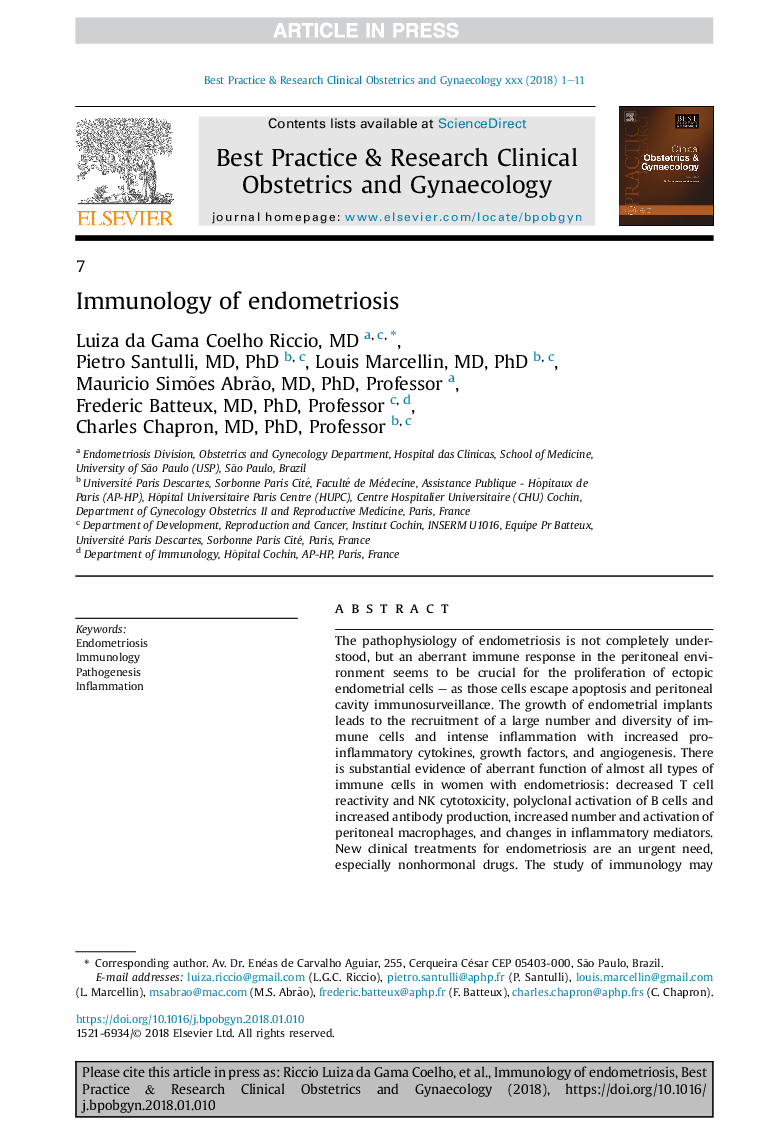| Article ID | Journal | Published Year | Pages | File Type |
|---|---|---|---|---|
| 8776464 | Best Practice & Research Clinical Obstetrics & Gynaecology | 2018 | 11 Pages |
Abstract
The pathophysiology of endometriosis is not completely understood, but an aberrant immune response in the peritoneal environment seems to be crucial for the proliferation of ectopic endometrial cells - as those cells escape apoptosis and peritoneal cavity immunosurveillance. The growth of endometrial implants leads to the recruitment of a large number and diversity of immune cells and intense inflammation with increased pro-inflammatory cytokines, growth factors, and angiogenesis. There is substantial evidence of aberrant function of almost all types of immune cells in women with endometriosis: decreased T cell reactivity and NK cytotoxicity, polyclonal activation of B cells and increased antibody production, increased number and activation of peritoneal macrophages, and changes in inflammatory mediators. New clinical treatments for endometriosis are an urgent need, especially nonhormonal drugs. The study of immunology may clarify its role in the pathogenesis of endometriosis and contribute to the development of new therapeutic strategies.
Related Topics
Health Sciences
Medicine and Dentistry
Obstetrics, Gynecology and Women's Health
Authors
Luiza da Gama Coelho MD, Pietro MD, PhD, Louis MD, PhD, Mauricio Simões (Professor), Frederic (Professor), Charles (Professor),
